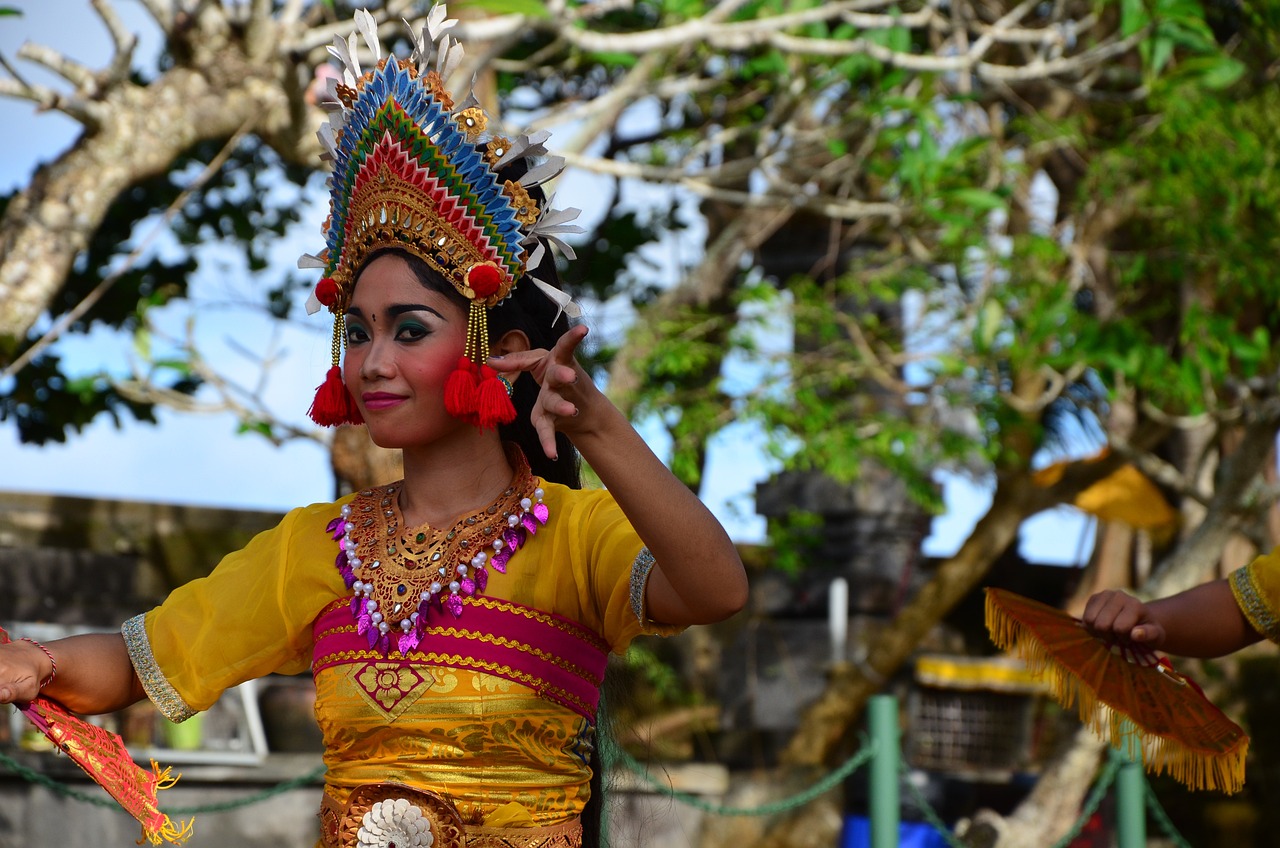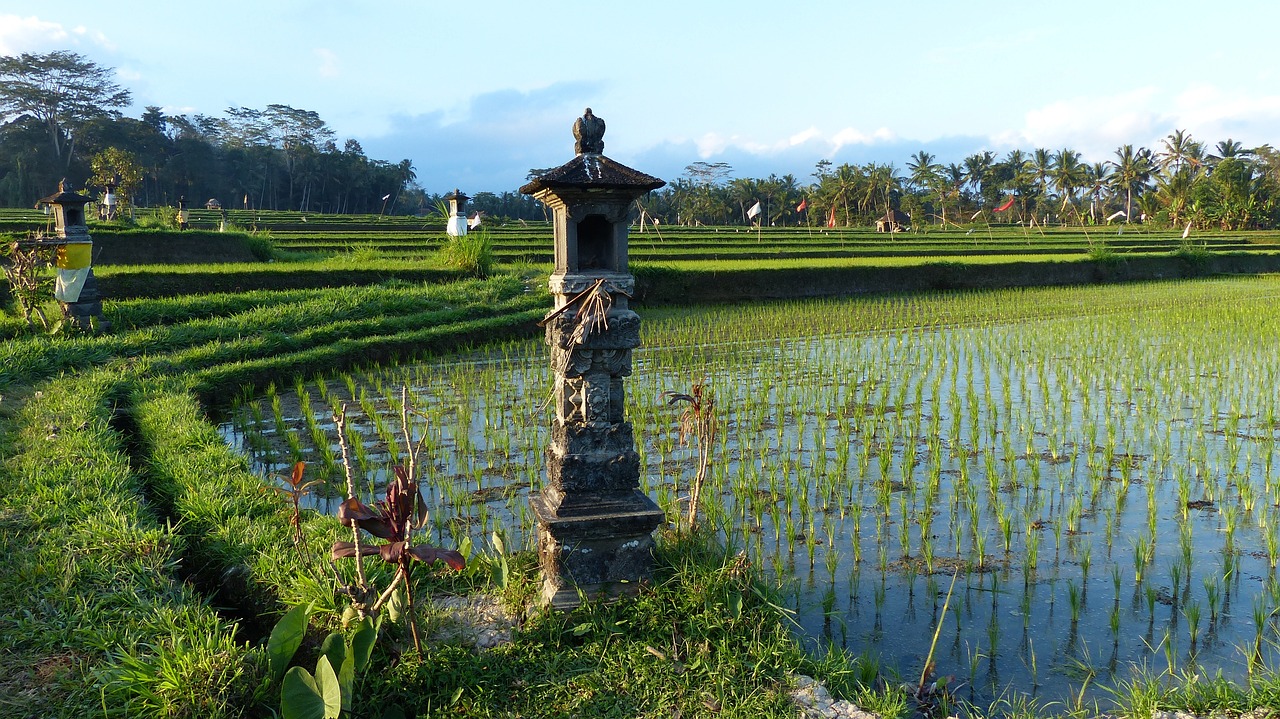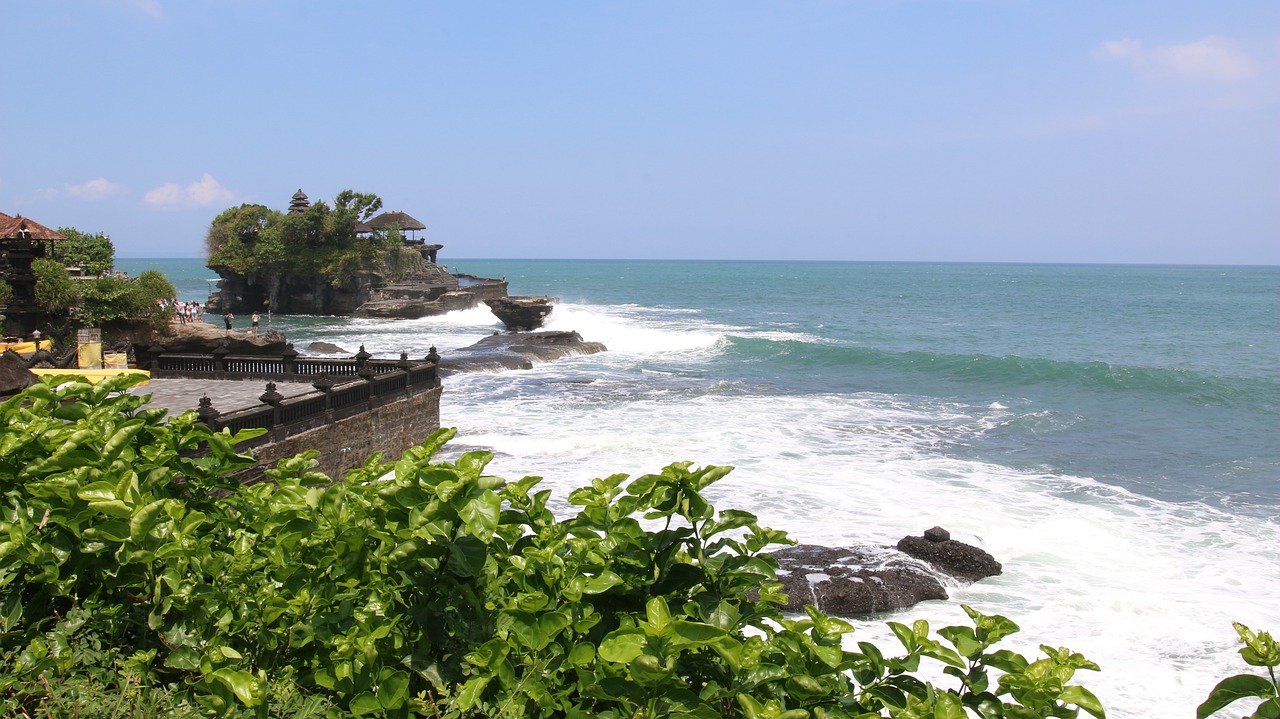Bali's Nyepi - The Day of Silence and Reflection
Bali's Nyepi, known as the Day of Silence and Reflection, is a truly unique cultural and spiritual event that holds deep significance in Balinese Hinduism. This sacred day is marked by silence, fasting, and self-reflection, creating a tranquil atmosphere across the island.
Originating from traditional Balinese beliefs, Nyepi is a time-honored observance that dates back centuries, rooted in the principles of harmony, purification, and spiritual renewal. It is a day when the hustle and bustle of daily life come to a standstill, allowing individuals to connect with their inner selves and the spiritual realm.
During Nyepi, a series of rituals and practices are carried out with meticulous precision. The Melasti purification ceremony, where Balinese Hindus cleanse themselves and sacred objects in the sea, symbolizes the purification of the soul. The vibrant Ogoh-Ogoh parades, featuring large demon-like effigies, represent the triumph of good over evil.
More than just a series of rituals, Nyepi holds profound spiritual significance for the Balinese people. It is a time for introspection, meditation, and seeking balance with nature and the unseen forces that shape their world. The day of silence serves as a reminder to pause, reflect, and realign one's thoughts and actions.
Leading up to Nyepi, the community actively participates in various preparations. Elaborate Ogoh-Ogoh statues are crafted to be paraded and later burned, symbolizing the release of negative energies. Purification rituals are performed collectively, fostering a sense of unity and shared purpose among the Balinese people.
Despite its spiritual importance, Nyepi also has practical implications for Bali's tourism industry. On this day, hotels shut their doors, the airport ceases operations, and tourists are encouraged to respect the local customs by observing the day of silence. This temporary pause in tourism highlights the cultural richness of Bali beyond its beaches and resorts.
In modern times, Nyepi has seen adaptations to incorporate digital detox and eco-friendly practices. Some Balinese choose to disconnect from technology and embrace sustainable living during this sacred day, aligning their observance with contemporary environmental concerns.
Preserving Nyepi as a cultural heritage is crucial for safeguarding its traditions and values for future generations. By upholding the customs and rituals associated with Nyepi, the Balinese people ensure that this unique tradition continues to thrive and remain an integral part of their cultural identity.
As global awareness of Nyepi grows, people around the world are beginning to appreciate the depth and beauty of Bali's Day of Silence and Reflection. Through education and cultural exchange, Nyepi has the potential to bridge cultural divides and foster a deeper understanding of the spiritual practices that shape Balinese society.

Origin and History
The origins of Nyepi, Bali's Day of Silence and Reflection, can be traced back to ancient Balinese Hindu traditions deeply rooted in the island's culture. This sacred day is based on the lunar calendar and marks the Balinese New Year according to the Saka calendar. Nyepi is a time when the island comes to a standstill, observing silence and self-reflection to ward off evil spirits and purify the environment.
Historically, Nyepi originated from the legend of King Kaniska I of the Kutai Kingdom in East Kalimantan, who introduced the Saka calendar in 78 AD. This calendar system, based on the phases of the moon, is still used to determine the date of Nyepi each year. The rituals and practices associated with Nyepi have evolved over centuries, blending Hindu beliefs with local customs to create a unique Balinese tradition.
During Nyepi, the Balinese people engage in various rituals to cleanse the island and their souls. The Melasti ceremony, held a few days before Nyepi, involves a procession to the sea for purification rituals. The Ogoh-Ogoh parade, featuring giant demon effigies, symbolizes the purification of negative elements in society. On the day of silence itself, everyone on the island is expected to stay indoors, refrain from lighting fires, and maintain a quiet atmosphere to deceive malevolent spirits that Bali is uninhabited.
This day of silence and reflection carries profound spiritual significance for the Balinese people. It is a time for introspection, meditation, and seeking harmony with nature and the spiritual realm. Nyepi is not only a cultural tradition but also a spiritual journey for individuals to reconnect with themselves and their beliefs.

Rituals and Practices
During Nyepi, Bali's Day of Silence and Reflection, a series of intricate rituals and practices are observed, each holding deep cultural and spiritual significance. One of the essential ceremonies leading up to Nyepi is the Melasti purification ritual, where Balinese Hindus gather at the beach to cleanse sacred objects and themselves in preparation for the new year. This ritual symbolizes the purification of the soul and the renewal of spiritual energy, setting the tone for the upcoming day of silence and reflection.
Another highlight of Nyepi is the vibrant Ogoh-Ogoh parades held on the eve of the day of silence. These larger-than-life demonic effigies are paraded through the streets to drive away malevolent spirits and negative energies from the island. The elaborate craftsmanship and creativity displayed in the construction of these Ogoh-Ogoh statues showcase the artistic talents of the Balinese community and add a festive atmosphere to the lead-up to Nyepi.
As the day of silence dawns, the entire island of Bali comes to a standstill. Streets are deserted, businesses are closed, and even the Ngurah Rai International Airport ceases operations. Balinese Hindus observe silence, refraining from engaging in any form of entertainment, work, or travel. The day is dedicated to self-reflection, meditation, and seeking inner harmony, allowing individuals to disconnect from the outside world and focus on spiritual introspection.
Community participation plays a crucial role in the observance of Nyepi. Families and neighborhoods come together to support each other in upholding the traditions of this sacred day. Communal fasting is practiced, with households refraining from cooking or lighting fires, symbolizing unity and solidarity in the face of silence and introspection. The collective effort to maintain the solemnity of Nyepi reflects the strong sense of community and shared cultural values among the Balinese people.

Spiritual Significance
The spiritual significance of Nyepi in Bali goes far beyond just a day of silence. It is a profound moment for the Balinese people to connect with their inner selves, their community, and the spiritual realm. This day is not merely about refraining from activities; it is about delving deep into one's thoughts and emotions, seeking inner peace and spiritual renewal.
During Nyepi, the Balinese engage in various spiritual practices such as meditation, prayer, and self-reflection. It is a time to cleanse the mind and soul, letting go of negativity and embracing positivity. The silence observed during Nyepi is not just the absence of noise but a symbolic gesture of turning inward, listening to one's inner voice, and communing with the divine.
Furthermore, Nyepi holds a significant place in Balinese Hindu beliefs as a day to maintain the balance between the forces of good and evil. The rituals performed during Nyepi are meant to ward off negative energies and bring harmony to the universe. It is a time for the Balinese to seek forgiveness, make amends, and start anew with a purified heart and mind.
For many Balinese, Nyepi is a spiritual journey that allows them to reconnect with their cultural roots, honor their ancestors, and strengthen their bond with the spiritual world. It is a day of introspection and contemplation, a time to seek guidance from the divine and align oneself with the natural order of the universe.

Community Participation
Community participation in Nyepi is a vibrant and integral aspect of Bali's Day of Silence and Reflection. The Balinese community actively engages in various preparations and rituals leading up to the sacred day, demonstrating their unity and devotion to this cultural tradition. One of the most visually striking community activities is the creation of elaborate Ogoh-Ogoh statues, giant effigies symbolizing evil spirits, which are paraded through the streets in a lively procession on the eve of Nyepi. This tradition not only showcases the artistic talents of the Balinese people but also serves as a symbolic cleansing ritual, purifying the environment and warding off negative energies.
Furthermore, community members participate in the Melasti ceremony, a purification ritual where sacred objects and effigies are taken to the sea for cleansing. This ritual symbolizes the cleansing of impurities and the renewal of spiritual energy, preparing individuals for the introspective period of Nyepi. Additionally, communal fasting is observed on the day of silence, with families coming together to abstain from food and noise, creating an atmosphere of peace and serenity across the island.
Moreover, the communal spirit is evident in the collective effort to maintain the solemnity of Nyepi. Villages coordinate to ensure that all activities cease during the 24-hour period, with even the streets remaining deserted. This shared commitment to observing silence and reflection highlights the strong sense of community cohesion and respect for tradition among the Balinese people.

Impact on Tourism
When it comes to Nyepi, the impact on tourism in Bali is profound and unique. This sacred day of silence and reflection brings the bustling island to a standstill, affecting both locals and tourists alike. As the Balinese community prepares for Nyepi by engaging in purification rituals and creating intricate Ogoh-Ogoh statues, tourists are encouraged to respect the customs and traditions surrounding this significant event.
One of the most noticeable impacts of Nyepi on tourism is the closure of hotels and resorts across the island. In an effort to honor the day of silence, hotels shut their doors, and guests are expected to stay within the confines of their accommodations. This period of inactivity allows visitors to experience a different side of Bali, one that is serene, introspective, and deeply spiritual.
Airports in Bali also cease operations during Nyepi, with no flights arriving or departing on the island. This temporary halt in air travel not only disrupts the plans of travelers but also serves as a reminder of the significance of Nyepi in Balinese culture. Tourists are advised to plan their trips accordingly, taking into account the day of silence and the restrictions that come with it.
Despite the challenges it poses for travelers, Nyepi offers a unique opportunity to witness and participate in a cultural event unlike any other. Tourists who choose to visit Bali during Nyepi can immerse themselves in the local customs, join in the Ogoh-Ogoh parades, and experience the profound sense of unity and reflection that permeates the island during this time.
Overall, the impact of Nyepi on tourism in Bali is not just about temporary inconveniences or disruptions. It is about embracing a cultural tradition that is deeply rooted in the spiritual beliefs and practices of the Balinese people. By respecting and observing Nyepi, tourists can gain a deeper understanding of the rich cultural heritage that defines Bali as a truly unique destination.

Modern Adaptations
Modern Adaptations of Nyepi have seen a shift towards incorporating contemporary practices while still honoring the essence of this sacred day. Balinese individuals are embracing digital detox as part of their Nyepi observance, disconnecting from technology to focus on self-reflection and mindfulness. This adaptation reflects the changing times and the need to find balance in a fast-paced, technology-driven world.

Cultural Preservation
Preserving the cultural heritage of Nyepi is paramount to the Balinese people, as it represents centuries-old traditions and values that hold the community together. The rituals and practices associated with Nyepi are not just a one-time event but a way of life deeply rooted in Balinese Hinduism. By safeguarding the essence of Nyepi, the Balinese ensure that future generations can continue to experience the profound spiritual significance of this sacred day.

Global Awareness
Global Awareness of Nyepi is steadily increasing as people from various parts of the world are becoming more intrigued by Bali's Day of Silence and Reflection. This unique cultural and spiritual event has captured the interest of travelers, spiritual seekers, and cultural enthusiasts alike. Through social media, travel blogs, and word of mouth, the significance of Nyepi is spreading beyond the borders of Bali.
As more individuals learn about Nyepi, they are drawn to the profound traditions and rituals that define this sacred day. The emphasis on introspection, self-reflection, and harmony with nature resonates with many who seek moments of tranquility and spiritual connection in their own lives. The global awareness of Nyepi serves to highlight the beauty and depth of Balinese culture, inviting people to appreciate and respect this ancient tradition.
Frequently Asked Questions
- What is Nyepi?
Nyepi, also known as Bali's Day of Silence and Reflection, is a sacred Hindu holiday celebrated in Bali, Indonesia. It is a day of complete silence, fasting, and self-reflection.
- When is Nyepi celebrated?
Nyepi falls on the day following the new year in the Balinese Saka calendar. This usually occurs in March or April each year, depending on the lunar cycle.
- What are the main rituals of Nyepi?
Some of the main rituals of Nyepi include the Melasti purification ceremony, the creation and display of Ogoh-Ogoh statues, and the day of silence where all activities come to a halt.
- How does Nyepi impact tourism in Bali?
Nyepi has a significant impact on tourism in Bali as hotels close, airports cease operations, and tourists are encouraged to respect the day of silence by staying indoors and refraining from any activities.
- Why is it important to preserve Nyepi as a cultural heritage?
Preserving Nyepi as a cultural heritage is crucial to safeguarding the unique traditions and values of Balinese Hinduism, ensuring that future generations can continue to observe and appreciate this sacred day.



















